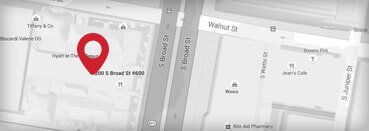Transition from developer to unit-owner control of a residential community association generally unfolds in one of two ways. In many instances, the “Transition” process is uneventful – there are no major design or construction defects and the sponsor/developer works with the association board to amicably resolve all outstanding matters such as completing punch-list construction items, making sure the association’s reserves and other accounting matters are complete, release of bonds, etc.
While a peaceful Transition is often accomplished between a unit-owner board and sponsor/developer, there are unfortunately some instances when Transition is not so easy and litigation ensues.
Typically, Transition litigation arises when there are major design/construction defects which are too costly for the sponsor/developer and the contractors to voluntarily repair. When Transition litigation becomes inevitable, the following are three important steps a board can take to minimize costs and maximize potential recovery:
A favorable jury verdict does not always translate into money for the association.
Winning a construction defect lawsuit takes a lot of time and effort by the association’s attorneys, but is often not the most difficult task counsel will face.
Indeed, design and construction defects are often self-evident: if a roof is put on incorrectly, there is usually no question that a construction defect exists. Juries rarely determine that the association is not entitled to any recovery in a Transition litigation matter. Rather, the more important task of association counsel is to determine where the money will come from once the jury returns a favorable verdict. In the case of larger communities, Transition typically occurs multiple years after completion of construction. By the time the dispute becomes a lawsuit, many of the contractors who are responsible for the poor construction are no longer in business or cannot be found. Others are barely making ends meet and certainly do not have assets sufficient to pay what is often a 6- or 7- figure judgment. Some have filed for bankruptcy protection.
Effective association boards work with their attorneys to make decisions along the way about pursuing only those parties and claims which have an ability to result in an actual payment to the association. Effective boards will have their attorneys determine which of the defendants are solvent and likely have assets to pay a judgment. For insolvent or judgment proof defendants, boards will determine through counsel if the defendants had insurance policies that might respond. In the absence of sufficient assets or available insurance coverage, a jury verdict for millions of dollars may not even be worth the paper it’s printed on!
Hire the right transition litigation experts.
Transition litigation is expensive. In addition to legal fees, boards will typically have to hire multiple experts. Good experts who are familiar not only with the substantive technical issues related to the defects, but who are also seasoned deposition and trial witnesses, are usually expensive.
However, cutting corners on experts can be fatal to a case. Before an expert is allowed to testify to a jury, the judge will have to determine if the expert’s qualifications and degree of testing at the community is sufficient to qualify as a litigation expert. If a judge precludes a key expert witness from testifying, the association will lose its case. Although it might be tempting for a board to save money by using a “friend” to serve as an expert – perhaps an existing unit owner with some background in construction, or a trusted maintenance contractor – this is a foolish decision which will likely have catastrophic consequences.
Hire the right transition litigation lawyers.
Transition litigation is complicated. It involves very technical issues in the disciplines of not only civil law, but construction, architecture, mechanical engineering and insurance. Boards are smart to hire construction lawyers who specialize, rather than dabble, in Transition litigation cases. The law is this area is frequently changing, and general practitioners may not be familiar with the current law. Also, experienced Transitional litigation lawyers will often know the strengths and weaknesses of the defense attorneys who also specialize in construction defect cases, which can be a strategic benefit.
In addition, because Transition litigation is often very expensive, associations sometimes cannot afford to pay lawyers hourly. Big cases will often have multiple dozens of represented defendants, and can sometimes take 5 years to get to trial. It is often difficult, if not impossible, for an association to pay lawyers hundreds of dollars per hour for multiple years. If an association does not have the money to pay lawyers hourly, and does not want to special assess its unit owners to do so, boards should consider hiring firms which will agree to take the case on a contingency fee basis. This way, the association only has to pay expert fees during the life of the case and the lawyers will only get paid after there is a recovery.
Stark and Stark Shareholders Andrew Podolski and Tana Bucca will be speaking on this topic, including additional ways associations can minimize costs and maximize recovery in Transition litigation, at the NJ Cooperator Expo on May 3, 2017. If you would like to attend, or if you cannot attend but would still like to speak to Mr. Podolski or Mrs. Bucca, please contact us.








